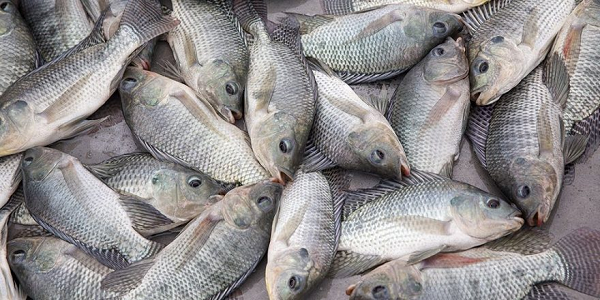
Ghana tilapia is safe for consumption
The Fisheries Commission has given an assurance that tilapia from Ghana is safe for consumption.
“The public must be rest assured that the tilapia on our market is safe to eat,” the Head of the Aquatic Animal Health Unit of the commission, Dr Peter Ziddah, told journalists at a news conference organised by the Ghana Aquaculture Association (GAA) to allay fears over the Tilapia Lake virus.
Dr Ziddah added that there was no scientific evidence that the virus was transferable to humans if they ate tilapia affected by the virus.
Ban on import of tilapia
Meanwhile, the Ministry of Fisheries and Aquaculture Development (MoFAD) has placed a ban on the importation of all ornamental fishes and tilapia species (live and dead), including gametes (eggs) and milt, into the country from July 1 to December 31, 2018.
A statement issued by MoFAD to announce the ban said the Tilapia Lake virus was a newly emerging virus associated with significant mortalities in farmed tilapia.
“The attention of the Ministry of Fisheries and Aquaculture Development (MoFAD) has been drawn to the fact that, cases have been reported across Africa, Asia and South America that the virus represents a huge risk to the global tilapia industry.
“This means all countries should be vigilant and act quickly to investigate cases of mortalities in farms,” the statement said.
Assurance
Dr Ziddah, therefore, appealed to journalists to help educate the public on the virus in order to project the tilapia industry, adding that local producers were capable of serving the market with healthy tilapia.
He dismissed speculations that fish that had the virus developed plastic skin.
The Government Relations Officer of GAA, Mr Angelo Habib, who addressed the conference, said: “We are assuring the public here and now that tilapia can be consumed with no risk whatsoever to public health.”
He explained that the virus was one of many fish ailments the world over and that the association was made aware of the virus five years ago, “and can categorically state that the virus is not present here in Ghana.”
He noted that a statement by the ministry, though well intended, had unfortunately created some misgivings and anxiety among the Ghanaian public who patronised the fish.
“We have met here today because of public concerns and fear regarding the statement from the Fisheries Commission some days ago on the Tilapia Lake virus (TiLv) and find it necessary, therefore, to speak on the issue,” Mr Habib explained.
Non-transferable to humans
“We, the GAA, have already taken various measures to safeguard our farms and fish from the Tilapia Lake virus and other viruses to ensure that none of them surfaces here in Ghana.
“We are conducting awareness training for farmers with GAA in respect of good husbandry practices on our farms,” he explained.
Mr Habib indicated that the GAA in conjunction with the fish health team of the Fisheries Commission, had taken steps to ensure that plans were put in place to tackle the virus before it took root.
He added that the association was actively working with the Fisheries Commission and other government agencies to the ban on importation of foreign tilapia onto the Ghanaian market.